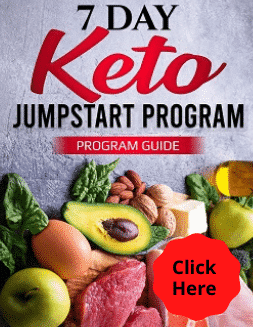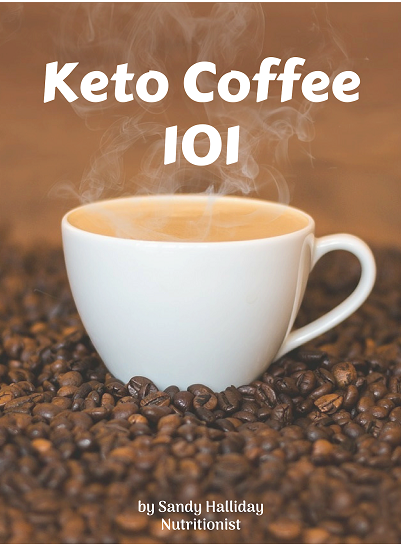It is not easy to deal with any constipation let alone keto diet constipation. This uncomfortable and distressing condition is usually due to the abrupt changes in your diet, which could affect your digestion.
When you are constipated, you will find it difficult to pass stools, your bowel movements will be less frequent than usual and you could have pain and bloating with it. Not nice at all!
Most keto dieters suffer from a degree of constipation at the start of their diet unless they are very careful, but will eventually get better once their body gets used to the diet. But if the condition persists, there are ways that it can be treated.
Ideally it’s better to prevent it or at least minimize the onset of keto diet constipation. Let’s look at why you might suffer from it and some ways to combat this distressing condition.
What Causes Keto Diet Constipation?
Any changes that you make in your diet will have an impact on your bowel movements. When following the keto diet, you switch into an extremely low-carb diet, which affects your bowel movement.
Dr. Alexandra Palma, a functional medicine expert of Parsley Health, has explained that constipation has something to do with the changes in your macronutrient intake. According to her,
“Because the ketogenic diet requires a big shift in macronutrient intake, it causes problems if you’re not eating in a balanced way.”
Several other factors can lead to constipation in people following the ketogenic diet. For many, it is due to the lack of fiber containing foods such as fruits, whole grains, and bread. These are the main sources of dietary fiber in a regular diet and eliminating them can wreak havoc on your bowel movement.
How To Combat Keto Diet Constipation
Although keto diet constipation is not something too serious, it can lead to discomfort and inconvenience. Thankfully, there are many ways to combat it.
Drink Enough Water
Drinking plenty of filtered or good quality bottled water each day is necessary for your overall health. This especially important if you are following a low carb diet like keto. If you are not drinking enough water each day, your body will absorb water from your colon to fight dehydration.
If there’s not enough water left in the bowel it will be difficult to pass the stools since there won’t be any fluid to lubricate the stool as it passes through the intestines. This then leads to constipation.
When it comes to drinking fluid, it’s important to remember that not all fluids are created equal. Since you’re on a keto diet, make sure you stick only to keto-friendly drinks.
Consider adding a pinch of Himalayan salt to your water, as this is an important electrolyte that can help to get the water into your cells.
Eat Non-Starchy Vegetables and Low Carb Fruit
Even though the keto diet requires that the majority of the foods that you eat should come from fats, it’s important that you also eat as many low carb vegetables as possible. These vegetables are high in fiber and nutrients but low in digestible carbs.
The fiber from these veggies will add bulk to your stool, helping it to pass more easily and quickly through your intestines. Some of the best vegetables to eat on a low carb diet are leafy greens, broccoli, asparagus, bell peppers, Brussels sprouts, and cauliflower.
Low-sugar fruits, such as berries and citrus fruits are also good sources of fiber.
Related reading: 5 Healthy Fruits You Can Eat On A Low Carb Diet
Include Natural Spices In Your Diet
Certain types of foods offer a natural laxative effect that can help treat keto diet constipation. Examples of these foods are spices such as turmeric and ginger.
Ginger is particularly good for gut health because it can stimulate the peristaltic movement of muscles in your digestive tract that help move the waste along. It’s a tasty herb to add to your meals to help you go to the bathroom more easily to fight constipation and bloat.
Besides being a natural anti-inflammatory turmeric is a natural laxative. One study in Japan found that volunteers who ate food with turmeric had a faster bowel transit time preventing constipation. One way of taking it is in a golden milk latte.
Golden milk is simply a mixture of coconut or almond milk with turmeric powder. Recipes often include coconut oil and some cinnamon.
Take High Fiber Seeds
It’s always a good idea to get your dietary fiber from food sources but because many of the high fiber vegetables are restricted on a keto diet you can add seeds such as flax or chia.
Flaxseed & Chia seeds
You can sprinkle whole flaxseeds (linseeds) or chia seeds on a salad or add ground flaxseeds or chia to a keto smoothie, yogurt or stir into soup.
Another way to use flaxseeds is to soak 1 tablespoon of whole flaxseed in half a cup of filtered water overnight. It forms a gel which you can eat as it is or add to keto smoothies. You can sweeten the gel if you like with a few drops of stevia or monk fruit
Psyllium husk powder
Another fiber that works well for many people is Psyllium husk powder which comes from a plant. Although psyllium consists mainly of carbohydrate, the majority comes from fiber so it is very low in net carbs.
Psyllium is often used to make keto bread or rolls and can be added to a pancake mix. It can also be added to your keto smoothies.
You do have to make sure you are drinking plenty of water when you use psyllium because it absorbs water. It’s best to start with a small amount like a teaspoonful to see how it affects you before increasing it gradually until it improves your constipation.
It’s best to avoid over the counter fiber supplements because they usually contain some form of sugar and the sugar free versions contain artificial sweeteners that can have side effects.
Be Careful with Dairy
Since you are trying to reduce your carb consumption, you could find yourself adding more dairy into your food, such as yogurt and cottage cheese. But be very careful not to overdo it, as this is one reason behind the keto diet constipation due to the high fat and low fiber content.
Although milk is usually associated with gastrointestinal symptoms of lactose intolerance, some people will get constipated when consuming milk products. If you are like them, you can switch to non-dairy alternatives for your milk, such as coconut milk and almond milk.
Fix Keto Diet Constipation with Magnesium
One of the most common side effects of having low magnesium is constipation. When following a new diet that requires you to eliminate certain food groups, there’s a good chance that you’ll end up with nutrient deficiencies.
So be very mindful of your magnesium when following a keto diet. Make sure you are getting enough vitamins and minerals. Some of the best sources of magnesium are green leafy veggies, soy, nuts and seeds, legumes, yogurt, and fish.
You can also take magnesium as a supplement. Magnesium citrate or oxalate capsules has been a good solution for constipation for many people on any diet.
Use Fish Oil
Some research shows that not having an adequate amount of Omega-3 fatty acids can lead to constipation. Oily fish like salmon are high in Omega-3 which can help to lubricate the bowel so can work well on low carb diets like keto.
Eating these fish is a great way to get Omega-3 fatty acids, but if you don’t like eating oily fish, consider taking fish oil supplements instead. Just make sure they are high quality and the manufacturers state that they are free of mercury and pollutants.
Exercise
Although some people boast they have lost weight on the keto diet without exercise it is important for good health to exercise regularly.
Exercise has the effect of stimulating the digestive system so can help prevent constipation. It helps with the contractions of the bowel muscles which are involved in moving the waste along the in the intestines.
The quicker it moves along the less water is absorbed from the bowel making the stools easier to pass.
Final Thoughts
The keto diet may initially come with side effects that include constipation. But once your body gets used to eating fewer carbs and more fats, these side effects will eventually disappear.
After a few weeks of going low carb, your GI tract will be able to adjust to your diet, and you’ll find that constipation will be less of an issue. To minimize your risk of constipation, make sure you eat a lot of fiber foods mentioned above as these foods can help to keep your bowels moving easily.
But if your keto diet constipation does not get any better despite following the tips above, you might want to see your doctor, a naturopath or Functional Medicine Practitioner. Your constipation may be due to something else.
If this is the case, your doctor can recommend prescription medications to help your GI tract get back to normal. Best to use natural solutions if you can.










